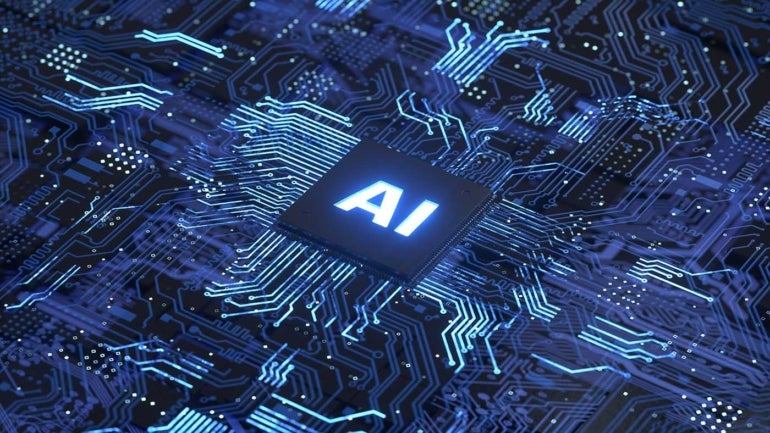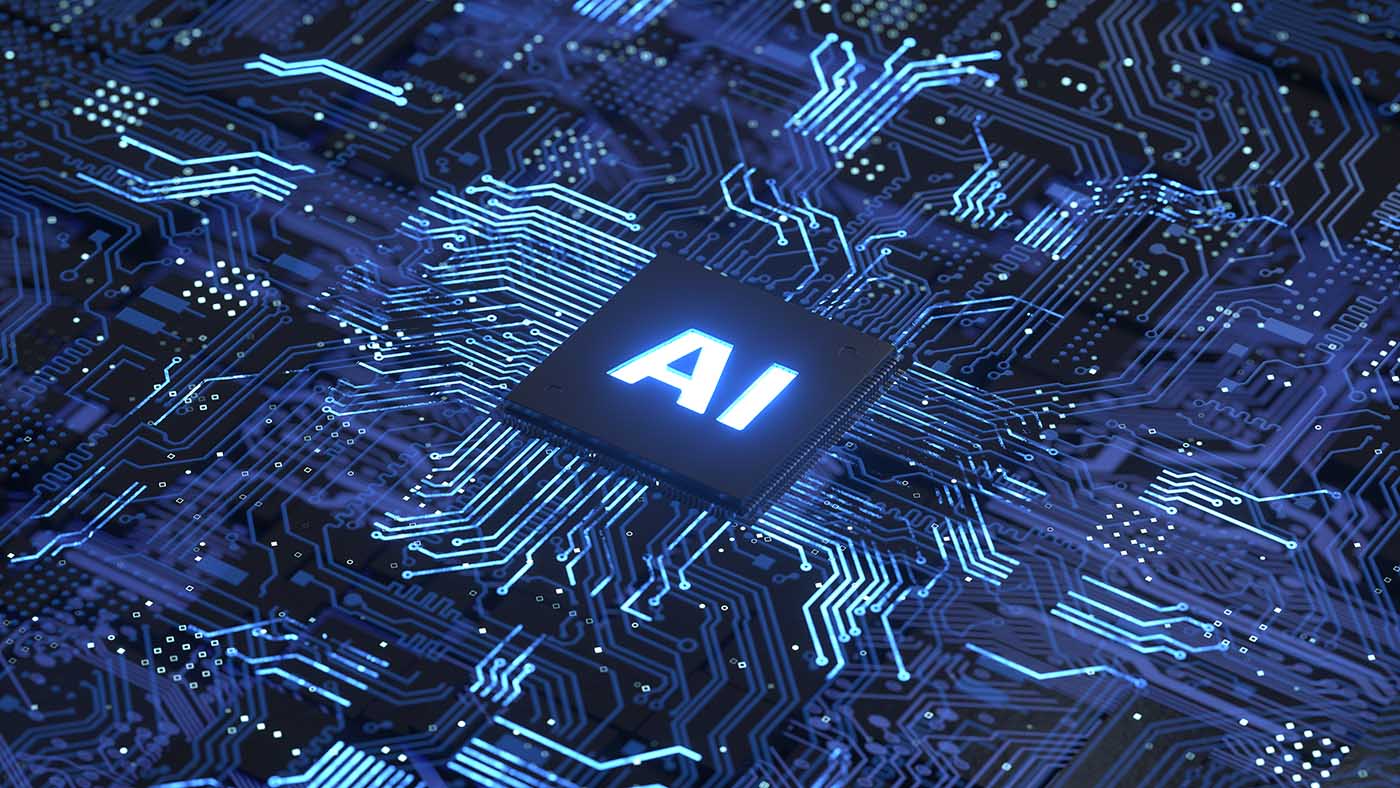
Lenovo announced on September 20 the new TruScale for Edge and AI services that are designed to give companies immediate, scalable access to next-generation AI. The company also released the new ThinkEdge SE455 V3 edge server, an AI-ready hardware resource for businesses that build their own edge infrastructure.
TechRepublic spoke to Blake Kerrigan, general manager, Global ThinkEdge Business Group at Lenovo, to learn what types of businesses should look into the new solutions, discuss challenges affecting the AI industry, including tech talent gaps, and find out how these products could help with environmental, social and governance concerns.
Jump to:
- What are Lenovo’s new TruScale services?
- Which businesses should consider the new ThinkEdge SE455 V3?
- Challenges of the U.S.-China tech regulations and AI talent gaps
- ESG and AI consumption demands and opportunities
- Top AI infrastructure-as-a-service competitors
What are Lenovo’s new TruScale services?
Building on TruScale’s Infrastructure-as-a-Service, Lenovo’s new TruScale for Edge and AI services allows businesses to leverage a pay-as-you-go model and rapidly deploy edge computing resources with AI-powered insights.
Kerrigan explained that even businesses with limited resources and funding can benefit from TruScale for Edge and AI solutions, giving them immediate access to edge AI deployment and Lenovo’s more than 150 turnkey AI solutions that address a wide range of industry-specific applications. Companies can also avoid the costs of managing their infrastructure because the platform is managed by Lenovo from end to end, from deployment to management and operation and scaling.
Lenovo TruScale allows companies to access:
- AI-ready hardware infrastructure from data centers to the edge.
- Expert support for companies to keep their IT staff focused on business innovation.
- A diverse portfolio of Lenovo edge’s clients, edge servers and data center hardware.
- High-performing CPU and GPU systems to efficiently handle heavy AI workloads.
- Lenovo Open Cloud Automation — a software solution for rapid deployment and management of on-premises infrastructure inside a data center or distributed across edge infrastructure.
- Hardware shipped directly from the factory, ready to be unboxed, activated and automated for remote deployment.
Companies can scale up or down and customize their infrastructure for AI.
Lenovo assures that the TruScale for Edge and AI services are designed for businesses across every industry, no matter where they work or operate.
“Whether that is on a city street, a manufacturing line or a fishing boat in the middle of the ocean,” Kerrigan said.
“As the amount of worldwide data grows exponentially, efficient edge computing infrastructure is essential to overcoming AI deployment complexities and helping businesses quickly translate data into actionable insights that streamline operations and improve business outcomes,” Kerrigan explained. “Across every industry, data center-like computing at the edge is empowering AI for improved emergency response, public safety, accessibility, tourism and retail experiences.”
Which businesses should consider the new ThinkEdge SE455 V3?
Companies that are heavily invested and committed to building their own infrastructure should look into the new ThinkEdge SE455 V3, especially if they’re facing networking constraints and lags due to massive data transfers from and to their edge systems.
Built into the new ThinkEdge SE455 V3 is the AMD EPYC 8004 Series Processor, which is designed for advanced data center computing. This processor enables next-generation AI applications while lowering power consumption.
The SE455 V3 edge hardware can handle the latest innovations such as large language models, which are known for their high computing demands. Lenovo says the edge server is silent, discrete and rugged to withstand tough environments.
“So whether it’s near a cash register, in a streetside cabinet, on a factory floor or in a guest lobby, businesses are able to leverage the (ThinkEdge SE455 Edge AI server) while gaining significant cost savings from lower power consumption in a small, quiet form factor with enhanced security,” Kerrigan said. Lenovo states the ThinkEdge SE455 is the most powerful edge AI server in the global market today.
Challenges of the U.S.-China tech regulations and AI talent gaps
U.S.-China tech regulations
In the past month, tensions between China and the U.S. have increased as both nations seek to control AI and the technology sector by applying import and export restrictions on chips and supply chain materials. The Biden administration says its China AI policy and restrictions are driven by concerns of how Beijing plans to use AI for cybersecurity, surveillance and AI weapons development, while China continues to impose new restrictions on the exports of key raw materials vital for the global tech industry.
U.S. company NVIDIA, which has already been banned from selling the A100 and H100 GPUs to China and any company operating in that country, along with AMD and others leading the AI development sector, assure that the escalation of tensions between both countries will hurt national businesses and lead to permanent long term losses.
We asked Kerrigan how the conflict impacts Lenovo globally and its operations in the U.S. Kerrigan explained that Lenovo remains strong in its position on AI and continues to push on through investing in AI.
“A challenging business environment also presents opportunities and only makes our focus on innovation more important,” Kerrigan said. “We will continue to leverage the opportunities the market presents, especially around AI and computing, to drive our sustainable growth and profitability.”
Kerrigan added that Lenovo considers AI and computing as their anchor technologies and critical pillars of its intelligent transformation strategy. The company is heavily invested in the area and has recently committed an additional $1 billion to AI initiatives, solutions and hardware.
If the tech conflicts between the U.S. and China continue to escalate, platforms such as TruScale for Edge and AI may benefit companies because they provide access to vital AI infrastructure.
AI talent gaps
Another issue affecting AI deployment in the U.S. and globally is talent gaps. While the U.S. leads the way in AI tech, the nation also faces serious AI talent deficits. McKinsey Digital reveals that applied AI and next-generation software development posted nearly one million jobs between 2018 and 2022, but the shortage of qualified talent “has been a persistent limiting factor.”
McKinsey data shows that the talent supply for some roles is extremely low. For example, for cloud and edge computing and generative AI regulatory compliance — both essential roles for companies to deploy and manage AI — there is only one skilled person for every 10 jobs posted.
Kerrigan explained that companies affected by talent gaps can use TruScale for Edge and AI to ” … offload all aspects of the deployment and lifecycle management to Lenovo’s team of AI experts.”
By significantly reducing the upfront costs of powering AI solutions and maximizing the end-to-end services and solutions offered by Lenovo, companies with reduced IT teams can deploy AI solutions.
ESG and AI consumption demands and opportunities
AI is expected to impact economic, sustainable and governance policies. Companies with ESG goals are looking closely into AI vendors that offer built-in ESG features; they want to track energy and power consumption and make sure their AI solutions are compliant and fair.
“Balancing performance with energy consumption is a challenge, especially when AI models demand significant computational resources,” Kerrigan said. “Edge devices often run on limited power sources, making power efficiency a crucial concern and barrier to adoption for industries navigating environmental variability and remote and specialized locations.”
Lenovo says the ThinkEdge SE455 V3 provides breakthrough performance without compromising energy efficiency.
“By consuming significantly less power compared to other servers, it not only reduces operational costs but also minimizes carbon footprint, contributing to ESG goals for Lenovo and our customers,” Kerrigan explained.
He added that customers can optimize their data center with TruScale to reduce their CO2 emissions and power consumption by up to 20% while supporting efficient edge AI computing to help improve business outcomes.
Lenovo AI Innovators program
Through the Lenovo AI Innovators program, the company offers more than 150 ready-to-go AI solutions. These solutions, developed by Lenovo and its partners, have already been tested, proven efficient and can be seamlessly deployed.
For example, in manufacturing, a Lenovo and partner edge AI solution is helping companies detect workplace hazards such as accidents, defective machinery and fires while state-of-the-art edge AI computing processes. Other solutions work specifically for sectors such as healthcare, hospitality, security and business intelligence and can enhance social and governance postures.
These AI solutions were developed prior to the launch of Lenovo’s new AI server, though the solutions use some of the infrastructure that TruScale offers. As more AI Innovators’s solutions are developed, it’s likely we’ll see them use the latest edge AI server.
Top AI infrastructure-as-a-service competitors
AI infrastructure-as-a-service is a relatively new industry that’s being developed using edge, cloud and infrastructure-as-a-service models combined with AI-as-a-service. While there has been a rise in new vendors specializing solely in AI software solutions, there are other companies that compete with Lenovo and offer the hardware and the software needed to deploy AI.
Amazon Web Services: The popular cloud vendors offer AI hardware and software solutions for customers to adopt machine learning and AI. AWS AI products and services are focused on business solutions and e-commerce and include generative AI chatbots and virtual assistance, antifraud and product recommendations.
Google Cloud AI: Google is another top cloud vendor that has incorporated AI infrastructure into its portfolio. Google Cloud AI provides a wide range of tools for developers to build generative AI apps, speech, text and language APIs and image and video APIs. Google Cloud AI also offers hardware for every type of AI workload through its partners (NVIDIA, Intel, AMD, Arm and more), as well as AI-optimized compute options across TPUs, GPUs and CPUs.
Azure AI infrastructure: Microsoft, through Azure, competes in the AI market offering compute-intensive hardware and software for AI workloads. The company is known for its Azure virtual machines and its AI infrastructure, which is optimized for Azure machine learning. Microsoft recently added the option for clients to access supercomputing resources, which they achieve by combining NVIDIA GPUs.
IBM Watson: Companies seeking data, AI training, coding and advanced business solutions can look into IBM Watson — the enterprise-ready AI and data platform. IBM provides infrastructure through its IBM edge and cloud computing solutions.
DataRobot: Founded in 2012 to support data scientists globally, this company has evolved to become one of the most well-known names in the AI adoption business. The company provides everything a business needs to build, deploy, manage and govern generative and predictive AI. Part of the hardware infrastructure DataRobot offers is through partners such as Google Cloud.
Alibaba Cloud AI and Data Intelligence: The biggest cloud vendor in China has jumped into the AI infrastructure-as-a-service market, leveraging its cloud and edge portfolio and combining it with a new and wide range of AI services, including pretrained models, machine learning frameworks and tools for developers and data scientists.


